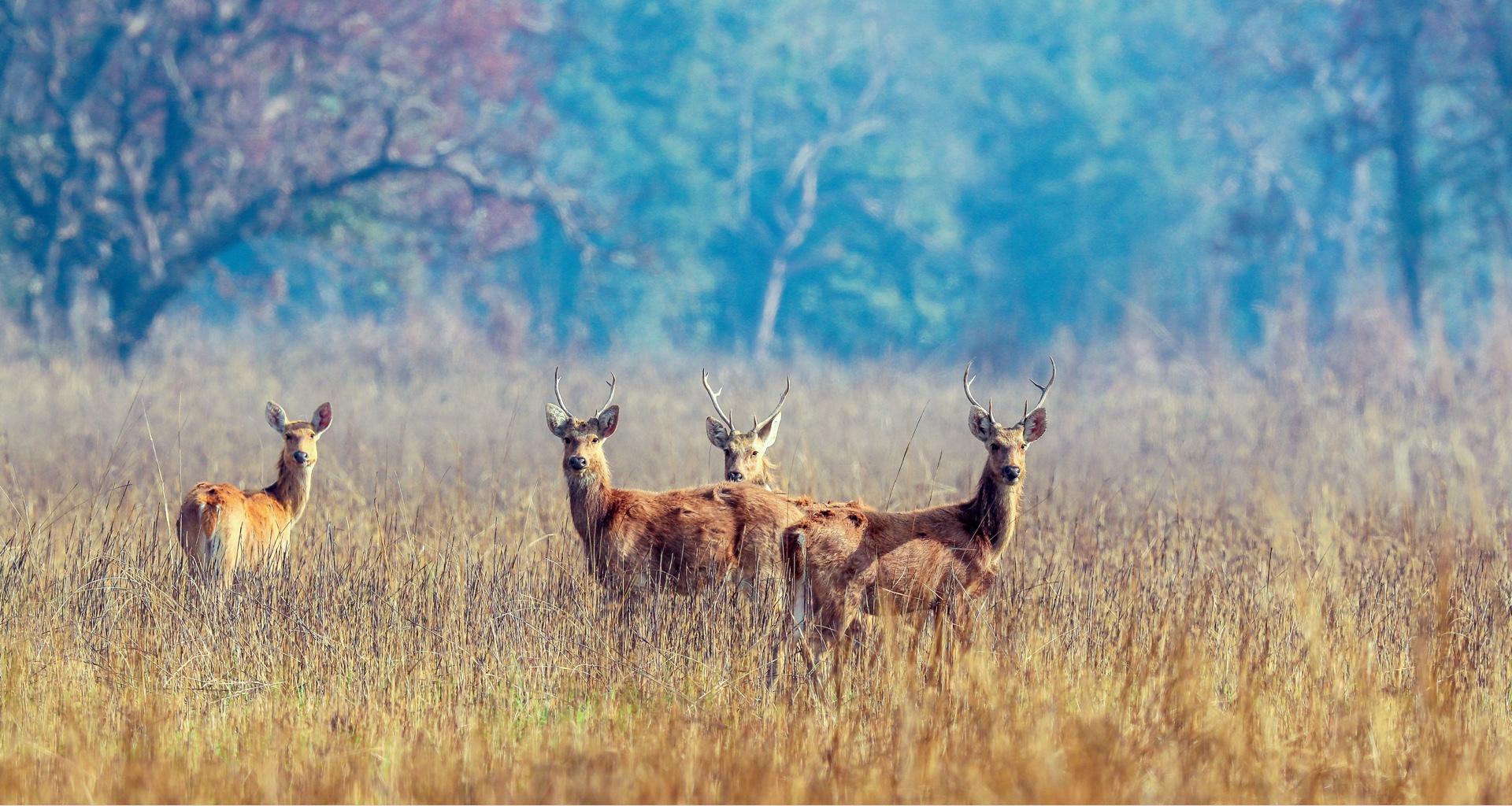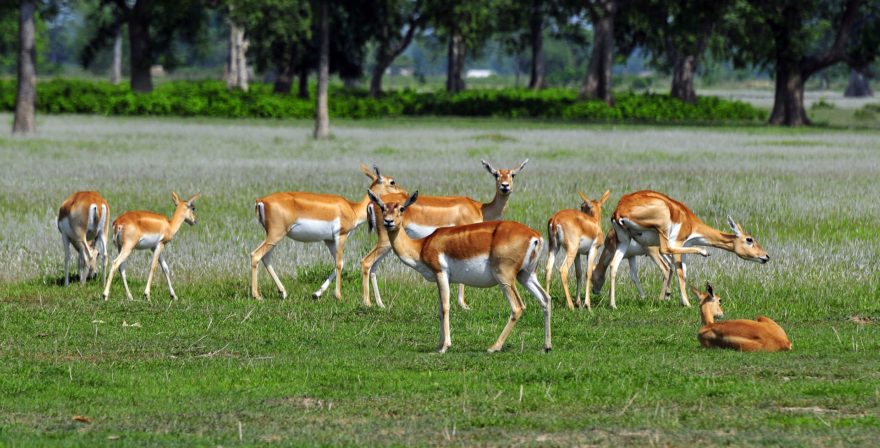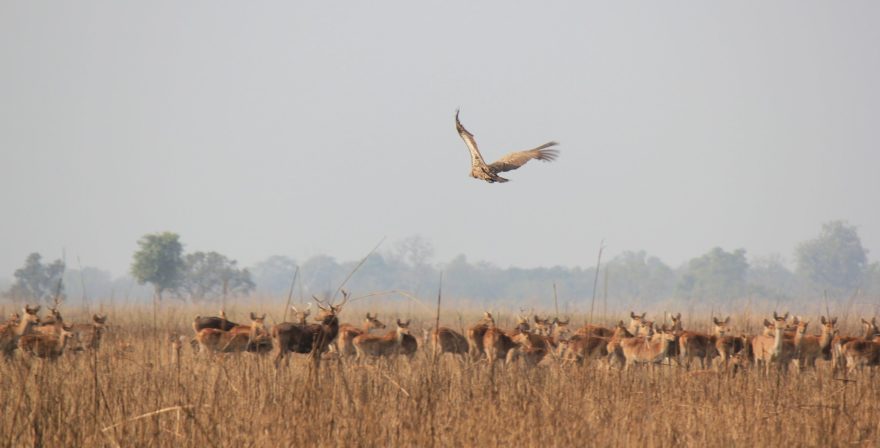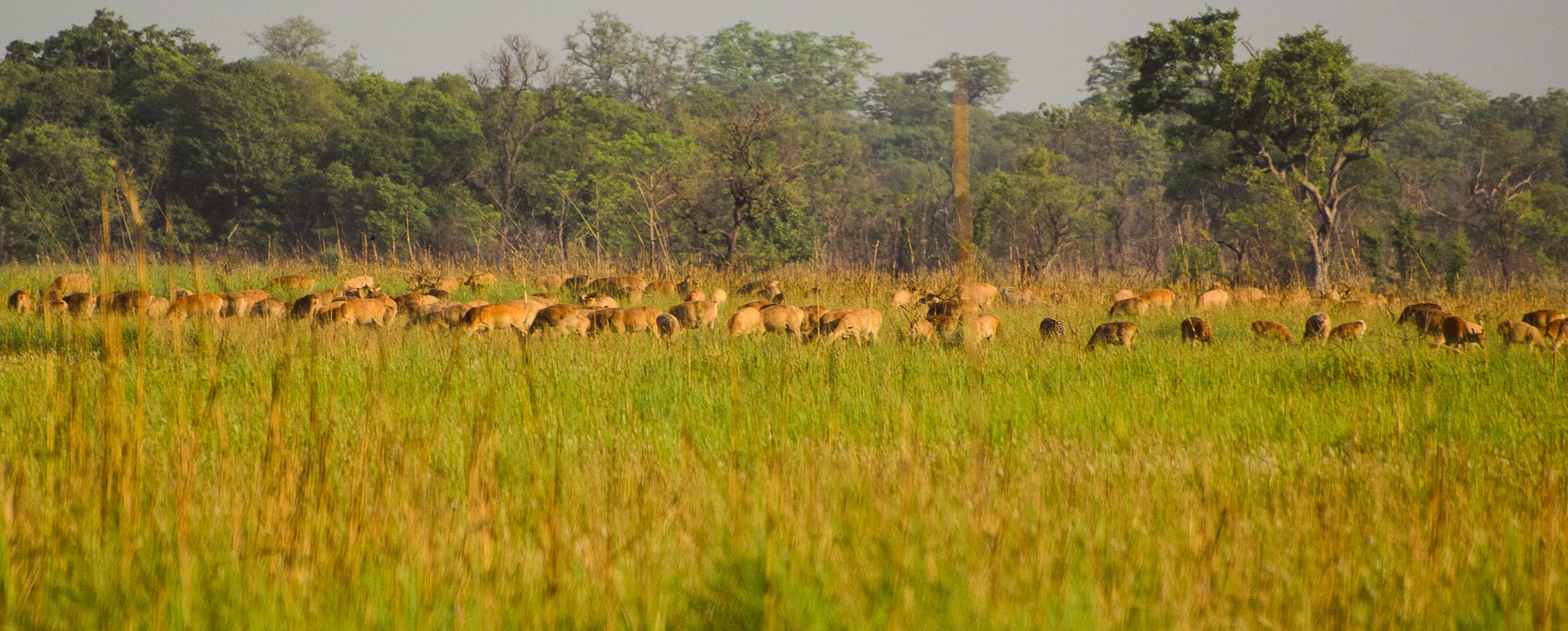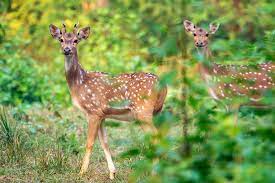WELCOME TO SHUKLAPHANTA NATIONAL PARK
Shuklaphanta National Park is situated at the southwest corner of Nepal in Kanchanpur district of Far West State. It lies between 28° 45' 47” - 29° 02’ 52” latitudes and 80° 05’ 45” - 80° 21’ 43” longitudes. The altitude ranges from 175 - 1300m above sea level. The park was a famous hunting area for royalties of Nepal and their distinguished guests for a long time. It was declared as Royal Hunting Forest with an area of 131 km2 in 1969. Later it was promulgated as the Royal Shuklaphanta Wildlife Reserve in 1976 covering an area of 155 km2 and extended to the present size of 305 km2 in 1994. The area of 243.5 km2 surrounding the reserve was declared as buffer zone in 2004 to join the hands with local people for conservation and development. The reserve was renamed as Shuklaphanta Wildlife Reserve in 2006 and its status was changed to a National Park in 2017. The name Shuklaphanta is taken from the largest grassland of Nepal Shuklaphanta which is a home to the largest herds of Swamp Deer in the world.
Species
56
Mammals
450
Birds
56
Reptiles
15
Amphibians
24
Fish

